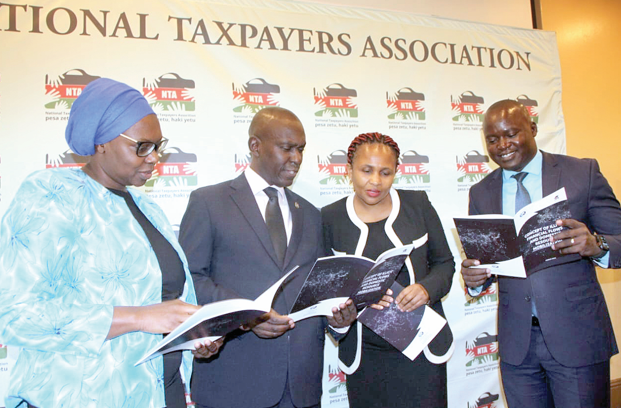Taxpayers body: Kenya lost Ksh106.4 billion to tax waivers and incentives

The country’s losses in annual revenue forgone through waivers and tax exemptions jumped by Sh106.4 billion from Sh393.6 billion in 2022 to over Sh500 billion in 2023, an estimated 3.3 per cent of the national Gross Domestic Product (GDP) in just a single year.
This is emerging even as a new report by the National Taxpayers Association (NTA) identifies bribery and theft by corrupt government officials as the key drivers of Illicit Financial Flows (IFFs) in Kenya.
The report, launched yesterday in Nairobi, also recognises that tax incentives – designed to attract foreign direct investment – have similarly backfired when granted without comprehensive impact assessments.
“Kenya’s national revenue loses ground through a combination of deliberate tax evasion and aggressive avoidance schemes, and abusive transfer pricing that shifts taxable profits to low-tax jurisdictions,” the report presented by lawyer Denis Moroga points out.
The report, Concept of Illicit Financial Flows and Domestic Revenue Mobilisation in Kenya, continues to indicate that some enjoy preferential regimes that often exceed initial projections of growth and employment.
It further picks out other commercial mischief such as trade mis-invoicing, which falsifies the value and volume of imports and exports, generous tax incentives granted without rigorous cost-benefit analysis, and the laundering of proceeds from organised crime – as major avenues through which the government continues to lose billions of shillings in tax income.
Irene Otieno, the outgoing NTA Chief Executive Officer pointed out that these are losses of a potential income the government could have earned from taxes but did not because of specific levy policies.
“If you look at how much Kenya loses as a country, it’s a significant amount and drawing from the tax expenditure reports we see authored by the Treasury, we see that Kenya is foregoing a lot of revenue.
The new NTA report exposes how tax loopholes, abusive incentives, and corruption are eroding national and county revenues. The report urges urgent reforms to plug revenue leaks.
At the county level, corruption remains a key enabler of IFFs. Funds earmarked for road construction, health clinics and water projects are diverted through inflated procurement contracts, fictitious payrolls and collusive tender processes.
Otieno is calling on the Senate, which is the Upper House to add its voice and ask itself as an intergovernmental relations issue why the national government is foregoing the revenue.
“So, today our key findings from our report show that it is imperative that the Senate and the Council of Governors find a way of protecting devolution by pushing back the national government to address revenue foregone because this will translate to resources to the counties, and therefore improve delivery of public services,” she said.
The report has exposed the myriad ways in which IFFs siphon off vital resources from Kenya’s economy.
Drawing on legal analysis, secondary data and interviews with key informants across government and civil society, the report underscores that despite a robust framework of tax laws and anti-corruption statutes, loopholes continue to facilitate the outflow of billions of shillings annually.















